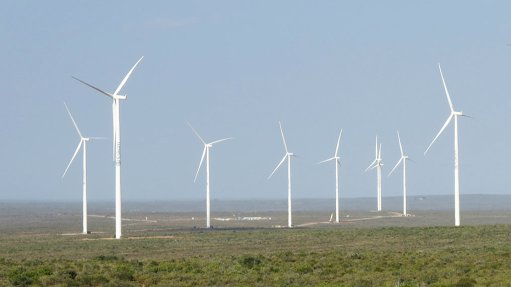Getting less for more
The phenomenon where you “get less for more”, also known as shrinkflation, is today’s reality. For a quick refresher on the product version, you should reread the piece published in this column on February 1, 2019, which was titled ‘Shrinkflation’. I would argue that there is a services equivalent.
Allow me to share one of my memories from when I started my working career in government in the 1990s. The memory is of a tearoom discussion. Back then, each section had a tearoom where attendance was compulsory at 10:00 and at 15:00. This was a time when the typing pool ruled the roost and human resources was but a small backroom function. Happy days. But I regress.
The topic of discussion was the demand for a salary increase, and what ‘corrective action’ could be employed. Strike action was not a possibility, but a go-slow was. For younger readers, a go-slow is generally accepted as a form of industrial action whereby work is deliberately delayed or slowed down.
As with all tearooms, ours was blessed with an elder statesman, someone who had seen it all. The mere mention of a go-slow awoke our elder statesman from his slumber. “Oh no!” he said. “We cannot pursue that course of action.” “But why not?” the shocked tearoom asked in unison. “Well, because we have tried that before. In fact, we started with it in the 1970s and have continued with it to this day. The thing is, the public had not even noticed.”
This leads me to shrinkflation in services, which your favourite search engine might not find but which, I argue, does exist, more prominently in government, the civil service. It is not only the increased cost that you are paying, but also the level of service that you are receiving in return.
As I wrote my second column on April 1 – yes, the Easter holidays play havoc with this column’s writing schedule – I could not immediately tell if what I was seeing was not an April Fool’s Day joke. According to a notice from the Department of Public Service and Administration, trade unions representing the majority of public servants at the Public Service Coordinating Bargaining Council (PSCBC) had accepted government’s wage increase offer of 7.5% for the 2023/24 fiscal year. This consists of a 4.5% non-pensionable cash allowance and a 3% pensionable increase for the current fiscal year.
You might recall from the 2023 Budget Review, delivered on February 22, that the National Treasury had budgeted for a 3.3% average annual increase in the public service’s wage bill over the next three fiscal years. This was unchanged from the 2022 Medium-Term Budget Policy Statement of October 26, 2022.
Worryingly, the public service wage bill does not correspond to higher economic growth – confirmation that you are paying more for less.
But this is not the end of the story. For the 2024/25 financial year, should this get majority support from trade unions at the PSCBC, public service salaries will be hiked by a projected Consumer Price Index capped at 6.5%.
This is placing the National Treasury in an unenviable position, as it needs to balance the interests of fiscal consolidation and sustainability with public service salary expectations. Unrealistic salary expectations, one might add. Here is the kicker – should the National Treasury deviate from its intended budget, this could ultimately lead to further international credit downgrades. The elephant in the room is that the civil service is simply too big, and its wage bill is too high – all this against the backdrop of a stagnant economy, which is exacerbating an ever- shrinking taxpayer base.
Government might want to heed the words of Mitt Romney: “People who are public servants should not be paid more than the taxpayers who are paying for it.”
Article Enquiry
Email Article
Save Article
Feedback
To advertise email advertising@creamermedia.co.za or click here
Announcements
What's On
Subscribe to improve your user experience...
Option 1 (equivalent of R125 a month):
Receive a weekly copy of Creamer Media's Engineering News & Mining Weekly magazine
(print copy for those in South Africa and e-magazine for those outside of South Africa)
Receive daily email newsletters
Access to full search results
Access archive of magazine back copies
Access to Projects in Progress
Access to ONE Research Report of your choice in PDF format
Option 2 (equivalent of R375 a month):
All benefits from Option 1
PLUS
Access to Creamer Media's Research Channel Africa for ALL Research Reports, in PDF format, on various industrial and mining sectors
including Electricity; Water; Energy Transition; Hydrogen; Roads, Rail and Ports; Coal; Gold; Platinum; Battery Metals; etc.
Already a subscriber?
Forgotten your password?
Receive weekly copy of Creamer Media's Engineering News & Mining Weekly magazine (print copy for those in South Africa and e-magazine for those outside of South Africa)
➕
Recieve daily email newsletters
➕
Access to full search results
➕
Access archive of magazine back copies
➕
Access to Projects in Progress
➕
Access to ONE Research Report of your choice in PDF format
RESEARCH CHANNEL AFRICA
R4500 (equivalent of R375 a month)
SUBSCRIBEAll benefits from Option 1
➕
Access to Creamer Media's Research Channel Africa for ALL Research Reports on various industrial and mining sectors, in PDF format, including on:
Electricity
➕
Water
➕
Energy Transition
➕
Hydrogen
➕
Roads, Rail and Ports
➕
Coal
➕
Gold
➕
Platinum
➕
Battery Metals
➕
etc.
Receive all benefits from Option 1 or Option 2 delivered to numerous people at your company
➕
Multiple User names and Passwords for simultaneous log-ins
➕
Intranet integration access to all in your organisation

















